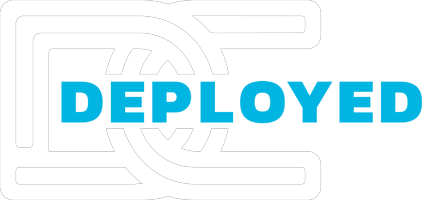Cost-Effective Data Solutions: Too Good to Be True?

Data, today, is akin to currency, and cost-effective data solutions have emerged as a critical component of modern business operations.
These solutions promise to offer efficient data management and analysis capabilities at a fraction of the cost typically associated with high-end data services. They are not just tools for large corporations but are increasingly becoming accessible to small and medium-sized enterprises, democratizing the ability to leverage data for business growth.
However, this promise of affordability often breeds skepticism. Questions arise about the effectiveness and reliability of these cost-effective solutions. Can they truly deliver on their promises, or do they compromise on quality for the sake of cost? This skepticism is not unfounded, as the data needs of businesses are complex and varied, ranging from storage and security to analysis and reporting.
As we delve into this topic, we aim to explore the reality behind cost-effective data solutions. This exploration will not only look at their potential benefits, such as increased accessibility and scalability for businesses of all sizes but will also critically examine their limitations and trade-offs. By navigating the landscape of these data solutions, we aim to uncover whether they are a viable option for businesses seeking to harness the power of data without breaking the bank.
The Importance of Data in Business
Data is the lifeblood of contemporary business, influencing everything from day-to-day operations to long-term strategic planning. As businesses of all sizes become more data-driven, the demand for efficient data management solutions has soared. The key challenge lies in balancing the need for robust data solutions with often stringent budget constraints.
Understanding Cost-Effective Data Solutions
Cost-effective data solutions are defined not just by their affordability but also by their value proposition. The market offers a variety of such solutions, including open-source tools, cloud-based services, and scaled-down versions of premium products. While they may lack some features of their higher-end counterparts, these solutions can still provide significant benefits, making them a viable option for many businesses.
Benefits of Implementing Affordable Data Solutions
Adopting cost-effective data solutions can lead to reduced overhead, increased accessibility to data, and scalability to match business growth. These benefits are particularly crucial for small and medium-sized enterprises (SMEs), enabling them to compete more effectively with larger organizations. Numerous success stories attest to the effectiveness of affordable data solutions in achieving business objectives without exorbitant costs.
Common Misconceptions and Realities
There are several misconceptions about cost-effective data solutions, such as the belief that they are inherently inferior or lack support. In reality, many of these solutions offer substantial functionality and performance, especially when aligned correctly with business needs. Understanding the capabilities and limitations of these solutions is essential for businesses to set realistic expectations.
Challenges and Considerations
Despite their benefits, cost-effective data solutions can present challenges, such as feature limitations and scalability concerns. It’s important for businesses to thoroughly evaluate these aspects, considering the total cost of ownership, which includes implementation, training, and maintenance costs. Making an informed decision requires understanding not just the upfront costs but the long-term investment in these solutions.
Integrating Affordable Data Solutions
Successfully integrating cost-effective data solutions into existing business processes requires careful planning. This involves training staff, managing change effectively, and regularly evaluating the performance of the chosen solutions. Best practices in integration ensure that the business reaps the full benefits of the data solution without disrupting existing operations.
The Future of Affordable Data Management
The landscape of affordable data management is continuously evolving, with emerging trends and advancements promising to enhance the capabilities of these solutions. Technologies like AI and machine learning are increasingly becoming integral to cost-effective data management, offering businesses new ways to extract value from data. Staying informed and adaptable is key for businesses to leverage these developments effectively.
Conclusion
In conclusion, cost-effective data solutions can be a realistic and valuable option for businesses seeking to leverage data without incurring prohibitive costs. While careful evaluation and strategic implementation are essential, the potential benefits these solutions offer make them a compelling choice for businesses of all sizes. Balancing expectations with needs, businesses can indeed find quality data solutions that are both affordable and effective, proving that sometimes, things that seem too good to be true might just be true after all.


